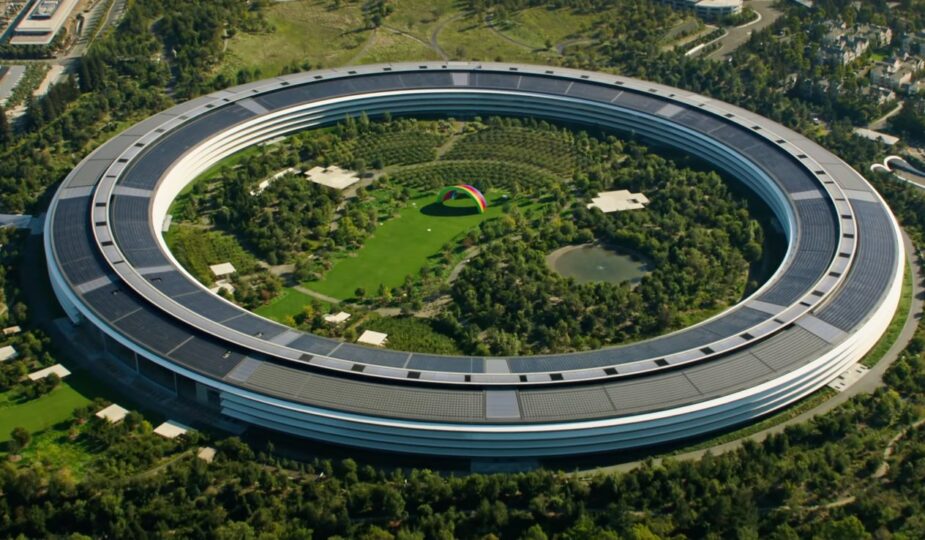Apple Park
 3 Facebook x.com Reddit
3 Facebook x.com Reddit
The US Department of Justice alleges that Apple violated antitrust laws on several fronts — and Apple hit back, denying all of the claims made in the lawsuit.
After years of promises to sue, the US Department of Justice has finally filed an antitrust lawsuit against Apple. For nearly a week, experts and analysts have been analyzing these claims, and now Apple has expressed its opinion publicly.
The Justice Department's complaint accuses Apple of violating Section 2 of the Sherman Antitrust Act in five ways. In a statement published by AppleInsider, Apple denied each of the claims, saying they were based on either outdated information or a misrepresentation of the company's business model.
First, Apple disagrees with the lawsuit's claim that Apple's market share in the U.S. is greater than 65% based on revenue. Based on sales volume, Apple accounts for less than half of the US market.
Here's a breakdown of the main complaints and Apple's responses to each.
About contracts and commissions
DOJ says Apple imposes contractual restrictions and fees that limit the features and functionality that developers can offer iPhone users. Additionally, Apple selectively restricts developers' access to APIs, degrading the functionality of non-Apple apps.
Most developers do not have to pay any fees to Apple
Apple responded by saying that this statement was misleading. Any rules or restrictions are in place to protect the privacy, security and convenience of users. What developers do outside of Apple's platforms is not part of the contract.
What the DOJ's problem with Apple's 30% commission doesn't mention is that 85% of developers don't pay any fees, and the vast majority are eligible for a reduced 15% commission. Apple's commission has already been tested in court by Epic, and Apple has won on that front.
About restrictions applied to super apps
Until the Department of Justice makes arguments beyond the original application, it will not be clear why it specifically singled out super apps. Apple says game streaming services have always been allowed on the App Store. The company even made changes to its rules to further promote game streaming. Game streaming available on iOS The rule changes may have come too late for Xbox to notice, but Microsoft decided to take advantage of the feature is not a problem for the Justice Department's antitrust case. Ministry Justice is concerned that SMS is only available in Apple's Messages app and is not available in third-party apps, which is an anti-competitive move on Apple's part. However, Apple has no data to prove that users want to receive SMS elsewhere, and the feature is not used by popular platforms on Android. For example, WhatsApp doesn't support SMS and Signal is ending support for SMS on Android. Additionally, the limitations of SMS, such as lack of encryption and small file sizes, are not Apple's invention. This is native to SMS, but iOS will have a new fallback generic option called RCS that will be better suited for communication between Android and iPhone. To Apple has offered broad support for any third-party smartwatch, and will need to consider each model, operating system, and more to ensure compatibility. The DOJ's claim that Apple is limiting the functionality of third-party smartwatches is based on the grounds that doing so is anticompetitive rather than technically infeasible. Technical obstacles prevent Apple from supporting all smartwatches Fitness bands and smartwatches that work with the iPhone today are accessed using Apple's APIs. Forcing users to ditch these products in favor of the Apple Watch doesn't make business sense. NFC technology, security element, and Apple Wallet is designed to provide ease of use, safety, and security for customers. Third parties can take advantage of the technologies through APIs, but cannot directly access NFC technology. Apple argues that these are not anti-competitive measures, but the result of how the technology is implemented to protect the user. Third parties get access to one-tap payment through Apple Wallet, and if developers want users to make contactless payments in an app like Walmart Pay, there's an API for that too. Regardless of whether it is related to By blocking iMessage or features only available on iPhone, Apple says its competitive advantages won't deter people from switching to Android. In fact, Apple makes it easy to transfer data from iPhone to Android device. The Justice Department says Apple is locking out customers using anti-competitive tactics. Apple offers a simple counter — maybe customers just love Apple products. Finally, the Department of Justice compared Apple to Microsoft. There are many flaws in this comparison, but Apple relies on market share as the company accounts for about 20% of the global smartphone market share. The Justice Department's antitrust lawsuit has just been filed. Expect this case and its appeals to continue over the next decade if previous major cases are any indication.About cloud streaming services
On the exclusion of cross-platform messaging applications
About reducing the function of third-party smartwatches
About limiting the use of digital wallets
When switching to Android









